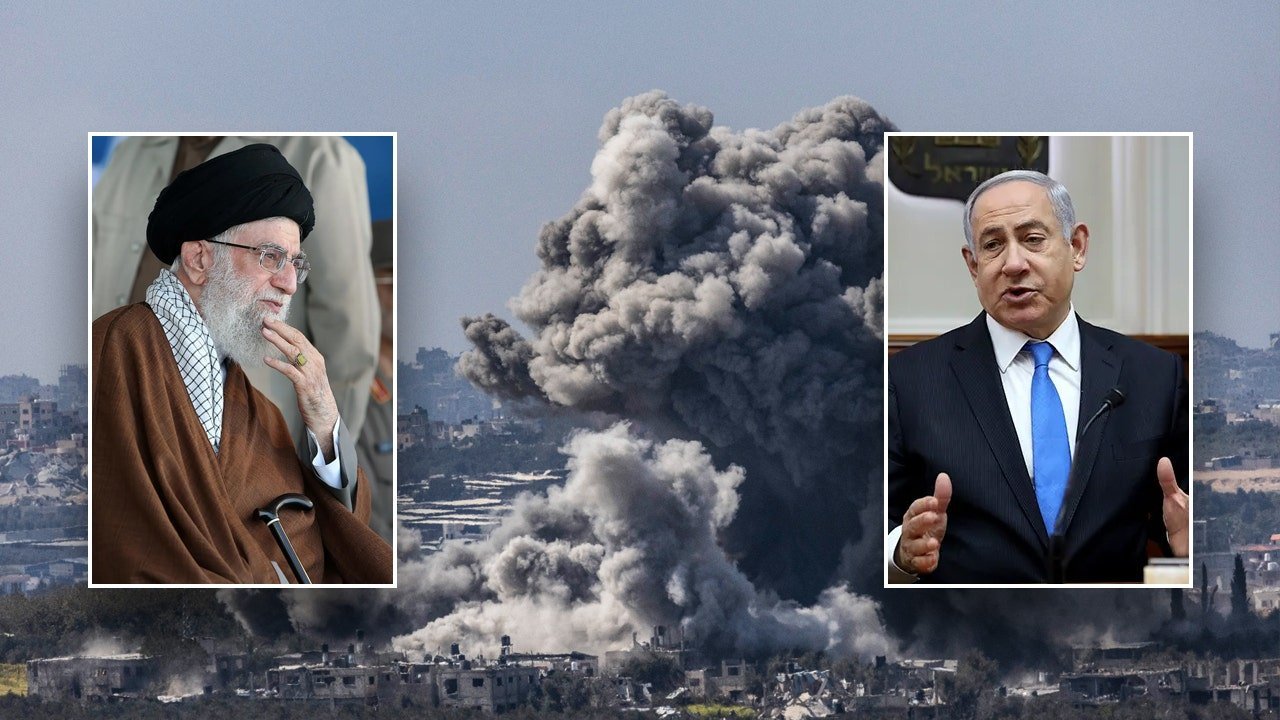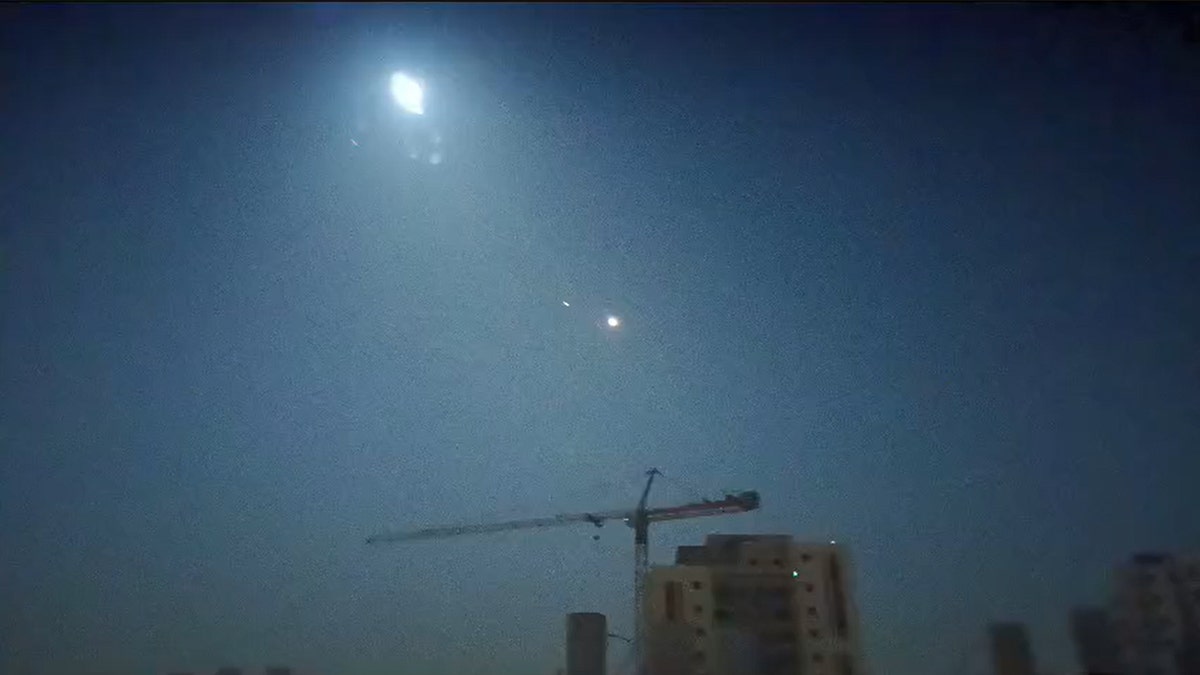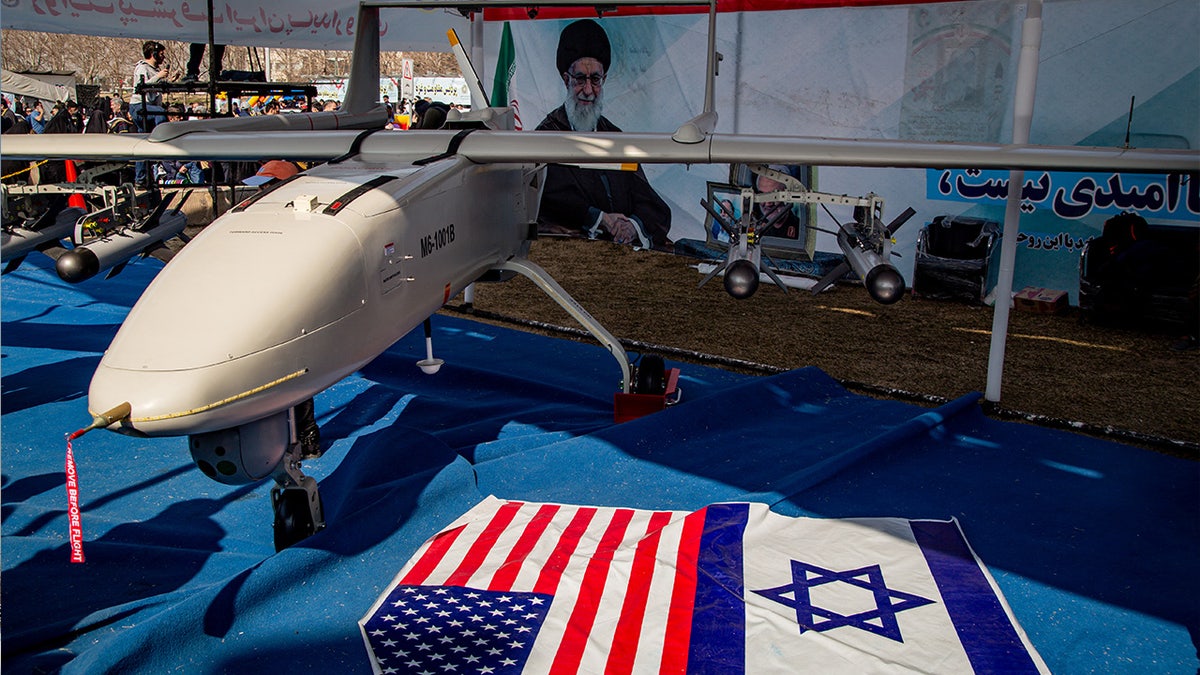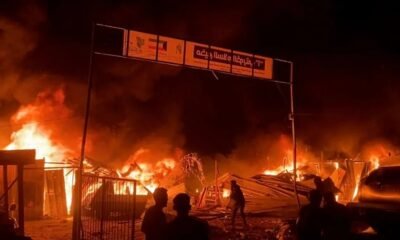INTERNACIONAL
How can Israel respond to Iran’s brazen attack?

After Iran’s attack on Israel was largely thwarted by the country’s defenses and key allies, attention has turned to how Israeli Prime Minister Benjamin Netanyahu could choose to respond.
«The fact that the Iranian attack was a total failure does not detract even an ounce from Israel’s obligation to retaliate against Iran for its direct act of aggression,» Jonathan Conricus, a former spokesman for the IDF and senior fellow at Foundation for Defense of Democracies (FDD) focused on the Middle East, told Fox News Digital.
The comments come after Iran launched over 300 missiles and drones from its own territory at Israel on Saturday, an attack that Israel claims was largely beaten back by its sophisticated defenses and the help of allies in the region.
But the brazen Iranian attempt has opened up questions about how Israel may choose to respond, even amid reports that the Biden administration has urged Netanyahu to show restraint in a bid to prevent an escalating conflict in the Middle East.
BIDEN CALLING FOR G7 MEETING IN RESPONSE TO IRAN’S ‘BRAZEN’ ATTACK

Israeli Prime Minister Benjamin Netanyahu meets with Israeli Defense Force soldiers on the front lines ahead of expected ground invasions. (Benjamin Netanyahu – בנימין נתניהו @netanyahu)
«It’s hard to conceive of a world in which Israel responds to Iran’s crossing of redlines by merely absorbing Tehran’s missile and drone strikes. It’s even harder to think of such a world in a post-October 7 Middle East,» Behnam Ben Taleblu, a senior fellow at FDD focused on Iranian security, told Fox News Digital. «Despite two decades of alarm ringing over the Iranian nuclear program, Israel has thus far not overtly attacked Tehran’s nuclear program. One wonders the degree to which this may change as Israel prepares its response.»
According to a report from the Jerusalem Post, such an attack on Iran’s nuclear capabilities has been the subject of years of planning, with the potential for a response to feature F-35 stealth fighter jets that would hit sites across Iran as far away as 1,200 miles from Israel.

Israeli defense systems intercept an Iranian missile over Maale Adumim, near Jerusalem, in the early hours of April 14, 2024. Credit Matanya Reichman/TPS
The aim of such an attack would be to eliminate Iran’s air defenses, the report notes, paving the way for the Israeli military to strike at nuclear facilities hand-picked by the country’s intelligence.
But Israel would likely need to make sure its plans garnered U.S. support, Conricus argued, adding that military strikes would not be the only option on the table.
IRAN OFFERS ISRAEL OFF-RAMP TO ‘CONCLUDE’ ATTACK AFTER LAUNCHING MISSILES, DRONES ON JEWISH STATE

Dozens of Israeli Air Force planes were deployed overnight. The jets intercepted UAVs and cruise missiles sent from Iran. Photo: IDF Spokesman’s Unit. (IDF Spokesman’s Unit)
«Israel has various long range capabilities to choose from, but what Israel has to ensure is U.S. support or at least approval, and to clarify the strategic objectives that it’s aiming for,» Conricus said. «Israel could retaliate against the Iranian military nuclear program or against its economic infrastructure, ports and refineries, depending on which strategic objective it wants to achieve.»
Overnight, Israeli forces pummeled Hezbollah targets in Lebanon in a barrage of airstrikes Sunday. Those attacks targeted a Hezbollah weapons manufacturing facility and other targets, the IDF said.

Missiles and UAVs are shown with Israeli and American flags on the ground for the people on the side of the road in Tehran, Iran, on February 11, 2024. (Photo by Hossein Beris / Middle East Images / Middle East Images via AFP) (Photo by HOSSEIN BERIS/Middle East Images/AFP via Getty Images) (Photo by HOSSEIN BERIS/Middle East Images/AFP via Getty Images)
«A short while ago, IDF fighter jets struck a number of military structures in a complex belonging to Hezbollah’s Radwan Forces in the area of Jbaa in southern Lebanon,» Israeli forces said in a statement. «Earlier during the night, IDF fighter jets struck Hezbollah military structures in the areas of Khiam and Kfarkela.»
According to the Jerusalem Post report, the wave of Israeli F-35s into Iran would likely be followed by separate waves of F-15 eagles, F-16 fighting falcons, and more heavily loaded F-35s carrying loads that could potentially penetrate deep into the ground to destroy Iranian nuclear facilities.
IRAN CLAIMS TO FOLLOW DRONE LAUNCH AT ISRAEL WITH BALLISTIC MISSILE BARRAGE
Israel could also use its own stockpile of surface-to-surface ballistic missiles and attack drones, the report notes.
While such an attack has been gamed out, Taleblu argued it is unclear whether Israel would opt for such a dramatic response.

Israeli Prime Minister Benjamin Netanyahu convenes the War Cabinet, at the Kirya in Tel Aviv following the launch of drones from Iran and aimed at Israel. (Prime Minister of Israel @IsraeliPM on X)
«Despite two decades of alarm ringing over the Iranian nuclear program, Israel has thus far not overtly attacked Tehran’s nuclear program,» Taleblu said. «One wonders the degree to which this may change as Israel prepares its response.»
Speaking with CNN Sunday, retired Gen. David Petraeus noted that Israel will have plenty of options if it chooses to launch a response, including both overt and covert military actions.
CLICK HERE TO GET THE FOX NEWS APP
«They can pursue asymmetric attacks, cyberspace and so forth,» Petraeus said. «And keep in mind that, of course, Washington is meeting with the other G7 countries to determine what kind of diplomatic and economic responses should follow in a coordinated effort as well.»
But whatever Israel decides, Taleblu said any plan will have to to come to a «theory of the case for victory.»
«Would it be going for a decapitation strike against regime leadership, a defanging strike against the regime’s long-range strike assets, or military bases, or a punishment strike that could perhaps target the energy and oil sectors, which is the financial lifeblood of the Islamic Republic,» Taleblu said.
INTERNACIONAL
Elecciones en Francia: qué escenarios políticos se abren ahora tras el triunfo de la izquierda

El triunfo de la izquierda en este balotaje suponen un revés para la líder ultraderechista Marine Le Pen, que fracasa en su intento de lograr la mayoría absoluta, que las proyecciones consideraban posible hace una semana, e incluso de ganar, como parecía posible hace dos días.
Varias hipótesis emergen: una difícil coalición entre parte de la izquierda y el oficialismo, o incluso un gobierno tecnócrata con apoyo parlamentario en la segunda economía de la UE.
Sin embargo, una eventual coalición parece difícil por las críticas cruzadas entre La Francia Insumisa (LFI, izquierda radical) de Mélenchon, importante socio del NFP, y el oficialismo. Macron calificó durante la campaña a este partido de «antiparlamentario» y «antisemita».
Una alternativa a LFI sería integrar en esta coalición a los diputados de derecha de Los Republicanos (LR), que no pactaron con RN. Sus eventuales escaños, entre 57 y 67, podrían ser cruciales para una alianza parlamentaria sin la izquierda radical.
«Nuestro pueblo ha rechazado claramente el peor escenario posible», declaró el líder izquierda radical Jean-Luc Mélenchon, para quien el NFP, que carece de mayoría absoluta, debe «gobernar», pero sin «entablar negociaciones» con la alianza de Macron.
El presidente francés pidió «prudencia» tras conocerse las primeras proyecciones y aseguró que su alianza de centroderecha «sigue bien viva». «La cuestión es quién gobernará a partir de ahora y logrará una mayoría», agregó.
Los pactos implícitos entre el oficialismo y la coalición de izquierdas, consistentes en concentrar el voto en el candidato con más posibilidades de derrotar a RN en cada circunscripción, frustraron no obstante la victoria ultraderechista.
El gran interrogante es a quien llamará el presidente Emmanuel Macron a ser el primer ministro. Macron quiere una coalición “coherente” para llegar a los 289 diputados para poder gobernar y pasar su legislación.. Pero ha decidido cancelar su discurso: no hablará hoy al país.
Frente a este escenario será Macron quien elija al primer ministro, opte por un gobierno técnico o por una gran coalición de convergencia moderada, excluyendo al RN y a la Francia Insumisa, a quien consideran ultra y antisemita.
En sus primeras palabras, el jefe de la Francia Insumisa, Jean Luc Melenchon habló y desafió al jefe de Estado. Dijo que “el presidente debe inclinarse y llamar al Nuevo Frente Popular a gobernar”. El primer ministro Gabriel Attal deberá renunciar y el NFP va a aplicar su completo programa, que va a aterrorizar a los empresarios.
El ex presidente François Hollande ganó en Tulle en esta segunda vuelta y puede llegar a ser un primer ministro moderado en el nuevo gobierno.
Artistas, deportistas, sindicatos y organizaciones se movilizaron para frenar la llegada al poder de la extrema derecha, como la estrella del fútbol Kylian Mbappé, que había llamado a votar «del lado bueno», en estos tensos comicios.
-
POLITICA1 día ago
Detuvieron a un hombre armado a metros del acto de Milei en San Juan
-
ECONOMIA3 días ago
La inflación de junio rondaría el 5,2% según los analistas consultados por el Banco Central
-
POLITICA2 días ago
El Gobierno busca bajar la tensión con el PRO y dice que cumplirá el fallo por la coparticipación a la Ciudad que reclamó Macri
-
POLITICA3 días ago
Federico Sturzenegger es el nuevo ministro de Desregulación y Transformación del Estado
-
POLITICA2 días ago
Caso Loan: incidentes en la puerta del Juzgado Federal tras la detención de Laudelina Peña
-
POLITICA14 horas ago
En Brasil aseguran que el gobierno podría retirar a su embajador en Buenos Aires si Javier Milei ofende a Lula en su discurso en el encuentro organizado por los Bolsonaro










































